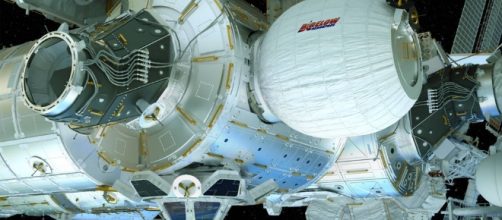The Space Angels Network has a piece on commercial space habitats and how they are going to shape the future of exploration and the eventual settlement of the high frontier starting in the 2020s. NASA has already begun a number of public/private partnerships geared for the development of commercial space stations, lunar bases, and habitat modules for interplanetary voyages, say to Mars.
The fact that the International Space Station is going to come to the end of its operational life in the 2020s will not mean that the desirability of living and working in low Earth orbit will be finished.
But follow-on space stations will almost certainly be commercial, with NASA and other national space agencies as anchor customers. These stations will be deployed and serviced by commercial spacecraft of the sort being developed under the commercial crew program for the ISS. These stations will be geared toward the needs of commercial customers and will likely have more amenities than does ISS.
Beyond low Earth orbit, NASA is already contemplating a space station in cis-lunar space. Commercial modules will also be used for a lunar base once astronauts return to the moon’s service. Eventual missions to Mars will need a habitation module to provide astronauts some room and protection on the months-long voyage.
Some of the players in the development of commercial space stations include Bigelow Aerospace, with its inflatable modules, as well as Lockheed Martin and a new startup called Axiom Space
The advent of commercial habitats fits in neatly with the Trump administration’s strategy of forging partnerships with the private sector to further national space goals. The strategy would be a repeat of the second Bush administration’s original initiative, doubled down on by the Obama administration, to start relying on private launch services for many of NASA’s needs. White Houses of both parties have come to recognize that the commercial sector has the flexibility to arrive at lower cost solutions to the problems of traveling and living in space. Combined with the Space Agency’s experience and resources, that quality will prove to be of great benefit for a well-funded, competently directed exploration program.

